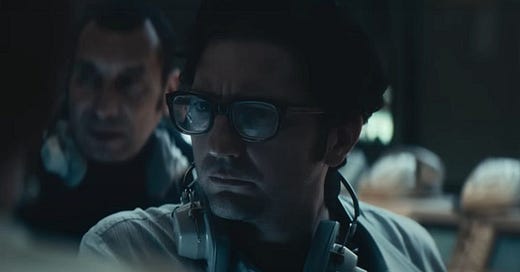Film Review - September 5
Tim Fehlbaum retells the notorious 1972 Munich Olympics terrorist tragedy from the perspective of ABC television
The devastating events of the 1972 Munich Olympics, in which Palestinian terrorist group Black September took the Israeli Olympic team hostage, have been memorably covered on film before. Most essentially, Kevin MacDonald’s superb Oscar-winning documentary One Day in September (1999) contains vital first-hand testimony, including a cont…
Keep reading with a 7-day free trial
Subscribe to The Dillon Empire: Simon Dillon on Substack to keep reading this post and get 7 days of free access to the full post archives.





